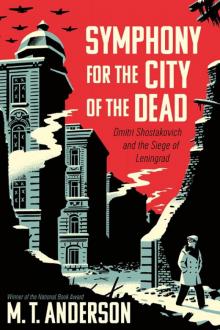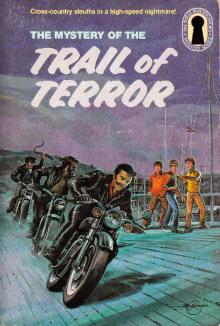Symphony for the City of the Dead


Author: M. T. Anderson
Category: Childrens
Published: 2015
Series:
View: 696
Read OnlineNational Book Award winner M. T. Anderson delivers an account of the Siege of Leningrad and the role played by Russian composer Shostakovich and his Leningrad Symphony.
In September 1941, Adolf Hitler’s Wehrmacht surrounded Leningrad in what was to become one of the longest and most destructive sieges in Western history—almost three years of bombardment and starvation that culminated in the harsh winter of 1943–1944. More than a million citizens perished. Survivors recall corpses littering the frozen streets, their relatives having neither the means nor the strength to bury them. Residents burned books, furniture, and floorboards to keep warm; they ate family pets and—eventually—one another to stay alive. Trapped between the Nazi invading force and the Soviet government itself was composer Dmitri Shostakovich, who would write a symphony that roused, rallied, eulogized, and commemorated his fellow citizens—the Leningrad Symphony, which came to occupy a surprising place of prominence in the eventual Allied victory.
This is the true story of a city under siege: the triumph of bravery and defiance in the face of terrifying odds. It is also a look at the power—and layered meaning—of music in beleaguered lives.
In September 1941, Adolf Hitler’s Wehrmacht surrounded Leningrad in what was to become one of the longest and most destructive sieges in Western history—almost three years of bombardment and starvation that culminated in the harsh winter of 1943–1944. More than a million citizens perished. Survivors recall corpses littering the frozen streets, their relatives having neither the means nor the strength to bury them. Residents burned books, furniture, and floorboards to keep warm; they ate family pets and—eventually—one another to stay alive. Trapped between the Nazi invading force and the Soviet government itself was composer Dmitri Shostakovich, who would write a symphony that roused, rallied, eulogized, and commemorated his fellow citizens—the Leningrad Symphony, which came to occupy a surprising place of prominence in the eventual Allied victory.
This is the true story of a city under siege: the triumph of bravery and defiance in the face of terrifying odds. It is also a look at the power—and layered meaning—of music in beleaguered lives.
 Ann Crosses a Secret Trail
Ann Crosses a Secret Trail The Watsons Go to Birmingham--1963
The Watsons Go to Birmingham--1963 The One Hundredth Thing About Caroline
The One Hundredth Thing About Caroline The Woodshed Mystery
The Woodshed Mystery Benny Uncovers a Mystery
Benny Uncovers a Mystery Outlaw: The Story of Robin Hood
Outlaw: The Story of Robin Hood Holiday Time
Holiday Time Sir Gawain and the Green Knight
Sir Gawain and the Green Knight